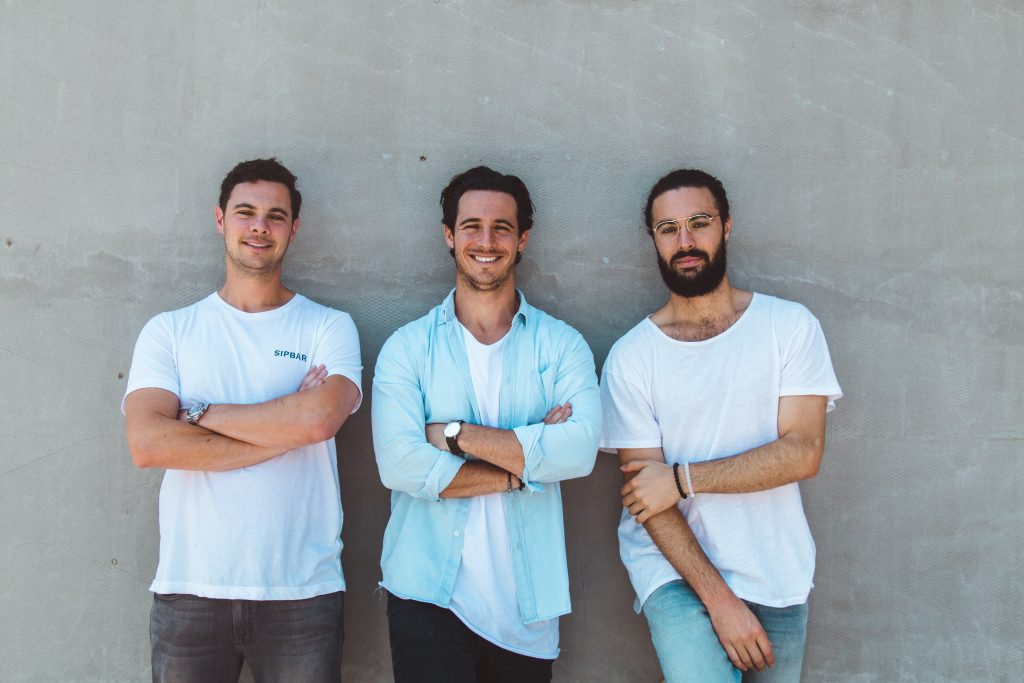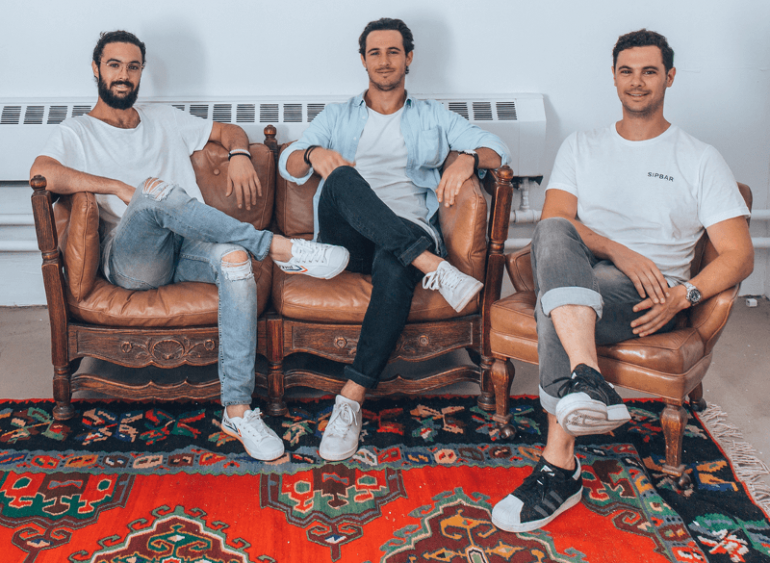As part of a regular series powered by Dell Small Business, BetaKit asks entrepreneurs to share lessons learned as they’ve grown their small business.
If you’ve been to a tech event in Toronto in the last few years, chances are your drinks were served by a bartender from SIPBAR, the on-demand bar service startup co-founded by brothers Alex, Jack, and Dan Boyman. We spoke to Alex Boyman about SIPBAR’s early days and the lightbulb moment when the brothers believed they had a scalable product.
How did you go about identifying the problems that SIPBAR solves?
Throughout 2016, we were doing pop-up bars in offices—initially for free. We identified the problem when our point of contact, whether an office manager or event planner, continued to come back to us for their future events.
We identified the problem over time—over a series of about 80 events in 2016. Throughout the course of that year, we started seeing that there were so many events being planned all the time by people who value their time in their job and in their work, but don’t necessarily want or need to deal with massive catering and all of the other sort of problems and associations that come with really planning out a very robust event.
How did you validate that your solution was viable?
We started just focusing on Toronto. For a little while we were doing one event on a given day. Then all of a sudden we had three clients in one day, and then a few weeks later, we had five clients in one day. We started solving those problems, and as the problems came to us, we continued to create solutions. And as we created solutions, we started really taking an angle saying, ‘well, can we do 20 of these in the same day? Can we do 50 of these in the same day?’
I think our first three-events-in-one-day day is really when the lightbulb went off that this is a scalable product; that this is something a lot of people need. We started building from there.
How do you approach deciding what technology you build in-house versus using a technology partner?
I would say throughout our life in the company, we’ve always started by searching for an existing SaaS platform. Our internal builds have been things that either we haven’t been able to achieve at scale or in an efficient way, or something that’s totally unique to our product that we can’t find.
As we mature, likely more and more builds will become internal, but part of the balance of being a startup is finding what exists and what it would cost to build it yourself. There are some great SaaS platforms that we would never want to internalize because they do it really, really well. We don’t need to build something that another company’s already solved.
Throughout this process of working together over the last two-and-a-half years, we’re partners, but we’re also each other’s mentors.
SIPBAR.com is unique because you can go online, build the profile of your event, build your bar, and check out. You basically can plan an entire event without talking to anybody—of course, we have a team here to assist. But we do have clients now who are comfortable and trust the platform and the process to just plan an event: 100 people on this date at this location, a craft beer selection, a premium wine selection, and two signature cocktails, and then it auto-generates a dynamic price. That’s been our proprietary technology to date.
How does SIPBAR define its culture and what do you do to foster it?
I would say there are two things there. One is our bartenders—or contractors—and the other is our internal team.
Starting with our bartender team: we’re not a staffing agency in which we’ll pick up and deploy anybody. We are really working hard every day to build a team that feels like a team and that operates like a team, even though they don’t work in an office together. We do a lot of things for our bartender team, and some of that would be community building and SIPBAR events with just our bartenders. We also have chat groups internally and include our contract workers in our Slack channels so everyone’s contributing to the daily conversation of building the company and really making everybody feel a part of the growth and success of every event.
As for the internal team, I think what’s really important, especially for a startup, is to find the right person for the role you’re trying to fill. As you build the team, you want to hire somebody and empower them to identify and solve a problem. In giving them the autonomy, you want to capitalize on either team mistakes or repetitive pitfalls and take that opportunity to create process.

Who do you look to for mentorship?
My brothers are my business partners. Throughout this process of working together over the last two-and-a-half years, we’re partners, but we’re also each other’s mentors.
We all have met every problem with such different opinions and we’ve been patient to work through so much and as brothers, we can tackle the personal and we can tackle the business.
What were some of the biggest struggles you had getting SIPBAR off the ground in the early days?
We’re still in our early days. The biggest struggle is to figure out how to make the operation lighter. In the beginning, we started with a very clunky operation, and it’s hard to solve those problems with limited money. Well, it’s hard to solve those problems even if you have money and you just try to solve them the wrong way.
I think that actually having a limited access to capital in your early days helps you be more creative in solving the problem. Although it takes more patience and maybe more trial and error, usually you can refine something and fine-tune it.
If you’re too addicted to one plan, one mindset, one vision, then you’re not going to look at solutions from different angles.
We have a ton of logistics in terms of setting up an event for multiple people, inventory pickups, drop off, delivery schedules, stuff like that. Refining that, as someone put it to me, there are two ways to get the boulder to the top of that hill: either put more people behind the boulder, or make the boulder smaller. For us, it was all about making the boulder smaller and then being very efficient with the amount of people that are pushing the boulder up the hill.
I think another early challenge is identifying problems that actually need to be solved, and identifying problems that might not need to be solved. We focus on solving problems that are in the service of our team’s culture and their efficiency, and in the service of perfecting our customer’s experience using SIPBAR from start to finish.
Is there any advice you’d want to give to other people who are just starting out?
Don’t be addicted to the plan. I think that’s something that I learned over the last two years, is set your goals and your trajectory, but you’re going to solve problems every day, and if you’re too addicted to one plan, one mindset, one vision, then you’re not going to look at solutions from different angles.
That said, you also shouldn’t lose focus on the vision of your core product or service. Distraction can kill you. The key is to identify the difference between being adaptable and being distracted.
SIPBAR’S sibling co-founders might be each other’s mentors, but it’s helpful for all entrepreneurs to connect with someone who understands their business. Dell Small Business appreciates the hard work and dedication that goes into running a small business. Contact a Dell Small Business Tech Advisor to get one-on-one advice and partnership to fuel your business’ growth.


